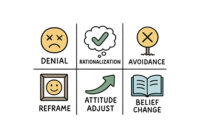The holiday season is upon us, and with it comes the opportunity to gather with loved ones to celebrate family ties. But sometimes, visits with elderly relatives can reveal troubling signs that point to elder financial abuse.
Widespread, expensive, and under-reported, elder financial abuse is to blame for more than $2.9 billion in losses annually, and estimates suggest that one in 10 seniors fall victim to this devastating crime.
Elder financial abuse is most commonly committed by caregivers, family members, and friends, making detection difficult. And because victims may feel loyalty to perpetrators, confusion over finances, or discomfort about speaking up, it’s estimated that just 1 in 44 cases of elder financial abuse are reported to authorities.
Visiting family members can help detect elder financial abuse. Among the red flags:
- Unusual use of credit cards. If elders are relying more on credit cards, or taking out cash advances, new financial stresses may be the cause.
- Unpaid bills and collection letters. The inability to cover routine household expenses, such as utility bills, is a signal that finances have gone awry.
- Statements for new financial accounts or credit cards. They may have been opened by the perpetrator with or without the elder’s consent.
- A lack of food. If elderly family members are suddenly cutting back on groceries and other staples they could previously afford, relatives should ask why.
- A sudden change in a long-time telephone number. A caregiver may be trying to isolate the victim from friends and family who might detect malfeasance.
- An unusual degree of intimacy with new or existing friends or caregivers. These emotional ties may be exploited for financial gain.
- Missing possessions – or lots of new ones. If household items are missing, theft could be the culprit. On the other end of the spectrum, an abundance of new gadgets in the house may signal that a family member or caregiver is buying items for their own use when they’re in the elder’s home, using the elder’s funds.
- Sudden ignorance about finances. If seniors who were previously adept at handling their finances begin to show signs of confusion when it comes to managing bills and income, fraudulent withdrawals, charges, or accounts may be to blame.
Concerned relatives who suspect elder financial abuse should contact the local authorities, adult protective services agency, or, for seniors housed in an assisted-living facility, the nursing home ombudsman. Attorneys and financial institutions can also help initiate investigations.
Lorraine Aho, CPA, CFE
Recipient- Influential Women award, North Bay Business Journal
Nominee- Women to Watch TrailBlazer award, CalCPA






Be First to Comment